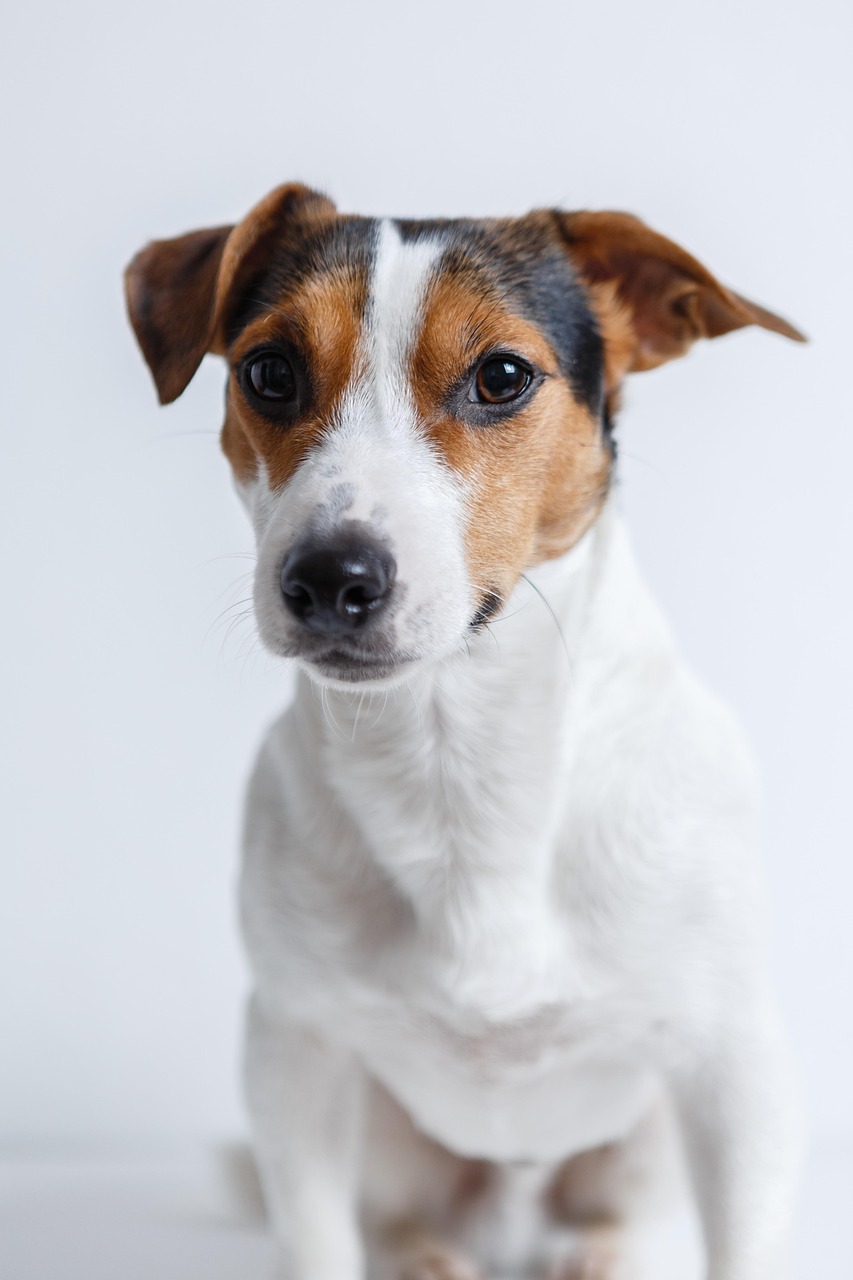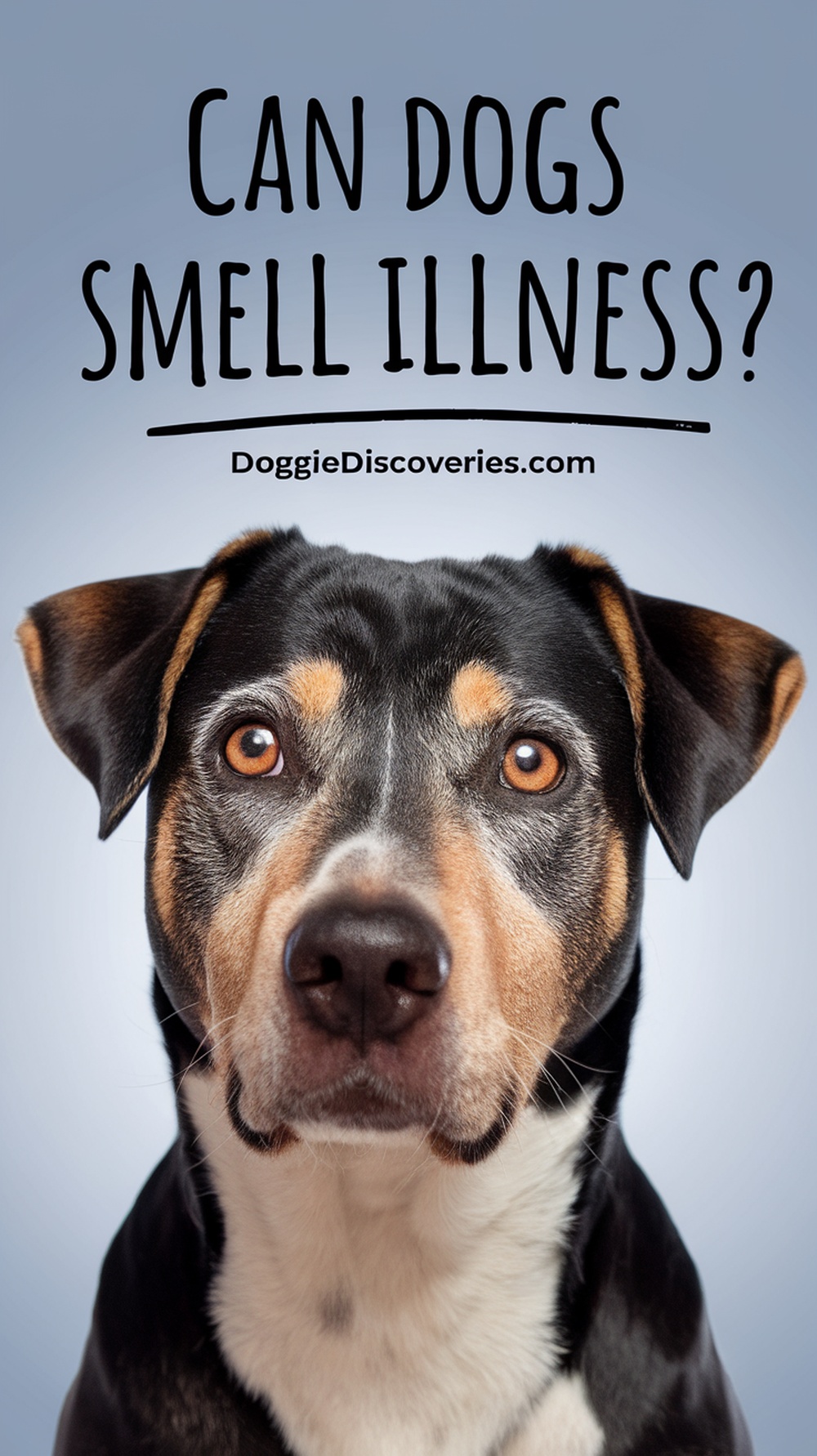Ever caught your dog staring at you like they know something you don’t? Maybe they sniff you a little too intensely one day, or they suddenly won’t leave your side when you’re feeling under the weather. Creepy? A little. Impressive? Definitely. But here’s the real question: can dogs actually smell illness?
Spoiler alert — yep, they totally can. And it’s not just one of those “dog people” myths. Science backs it up. So grab your coffee (or your dog’s favorite treat), and let’s talk about how your furry friend might secretly be the best doctor you’ve ever had.
The Nose Knows: Why Dogs Have Superhuman Smelling Powers

Alright, first things first — dogs’ noses are ridiculously powerful. Like, if our noses were old flip phones, theirs would be the latest iPhone with all the bells and whistles.
Here’s how wild it gets:
-
Dogs have up to 300 million olfactory receptors in their noses.
-
Humans? We barely have 5 million. (Ouch.)
-
The part of their brain that processes smell is about 40 times larger than ours, proportionally.
So yeah, when your dog’s sniffing that random spot on the carpet for 10 minutes straight, they’re basically analyzing it like a CSI agent.
Ever wondered why dogs love sniffing everything (and everyone)? It’s their way of reading the world. Every scent tells them a story — who’s been around, what they’ve eaten, and even how they’re feeling. So it’s not that your dog’s being weird when they sniff your shoes for the 10th time; they’re just… curious scientists in fur coats.
Can Dogs Really Smell Illness?
Short answer? Yes. Long answer? Heck yes — and with shocking accuracy.
Dogs can detect changes in body odor that come from illnesses like cancer, diabetes, infections, and even neurological disorders. When something’s off inside us, our bodies release different chemical compounds — and dogs can pick up on that.
Here’s a few fascinating examples that’ll blow your mind:
-
Cancer Detection: Studies show dogs can smell certain cancers, including lung, breast, and prostate cancer, often earlier than medical screenings do. That’s right — Fido might notice your illness before your doctor does.
-
Diabetes Alerts: Specially trained dogs can sense blood sugar drops and alert diabetic owners before things get dangerous.
-
Seizure Prediction: Some dogs pick up subtle scent changes or behavioral cues before a seizure occurs, giving their owners precious minutes to prepare.
-
COVID-19 Detection: During the pandemic, trained dogs helped screen travelers by detecting COVID through scent — and they were shockingly accurate.
So next time your pup keeps sniffing you like they’ve found buried treasure, maybe don’t push them away. They could be picking up on something real.
How Do They Do It?

Okay, so how does your dog go from “rolling in mud” to “medical marvel”?
It all comes down to volatile organic compounds (VOCs) — those tiny chemical molecules our bodies release. When we’re sick, the type and amount of these compounds change. Your dog’s nose catches these subtle shifts like a radar.
To put it simply:
-
Your body changes when you’re unwell.
-
It gives off different smells (you can’t detect them, but your dog can).
-
Your dog’s super-powered nose picks up on it.
Imagine if your friend could smell your bad mood — now multiply that by 1,000, and that’s your dog.
Some dogs even go through training to identify these “illness scents.” They learn to associate certain smells with specific diseases and then signal their handlers — sometimes by pawing, sitting, or even staring intensely (you know that stare).
Pretty amazing for a species that also tries to eat socks, right?
Can Regular Dogs Smell Illness, or Only Trained Ones?
Good question. While professional medical detection dogs undergo rigorous training, even your average household dog might notice when something’s off.
Think about it — has your dog ever acted differently when you were sick? Maybe they suddenly became clingy, or they seemed unusually calm and watchful. That’s no coincidence.
Dogs pick up on:
-
Changes in your scent
-
Differences in your body language
-
Altered energy levels or emotional state
So, while your dog might not know the word “cancer,” they can sense that something’s changed — and they respond with concern, curiosity, or extra cuddles.
In my experience, my dog once refused to leave my side when I had the flu. Normally she’s a zoomie machine, but that week? She was basically my nurse. Coincidence? Maybe. But IMO, she knew I wasn’t at 100%.
What Illnesses Can Dogs Smell?

Here’s a quick rundown of conditions dogs can detect (some naturally, others through training):
-
Cancer (lung, breast, prostate, ovarian, colorectal, skin)
-
Diabetes (especially low blood sugar)
-
Malaria
-
COVID-19
-
Epileptic seizures
-
Parkinson’s disease
-
Bacterial infections
-
Stress and anxiety (yes, mental health emits its own scent pattern!)
That’s a lot, right? It’s like dogs are walking, barking bio-scanners.
And to be fair, not every dog can do this perfectly. But even the untrained ones can show signs that something’s wrong — especially if they’re emotionally bonded with you.
How Dogs React When They Sense Illness
Every dog’s different, but there are some common behaviors that may suggest your dog’s picking up on an illness.
You might notice your dog:
-
Becomes extra protective or clingy.
-
Sniffs you obsessively (especially a particular area).
-
Acts anxious or restless around you.
-
Whines or paws at you for no clear reason.
-
Sleeps near you more often, even if they don’t normally.
If your normally independent dog suddenly transforms into a furry shadow, it might be worth paying attention. They’re not trying to be annoying — they’re trying to tell you something.
And yeah, sometimes it’s probably just that you smell like snacks. But sometimes… it’s more than that.
The Science Behind the Sniff

Alright, time to nerd out for a second (just a second, promise).
When scientists test dogs’ illness-detection skills, they use controlled environments where dogs sniff samples of breath, sweat, urine, or even blood. Then they reward them when they correctly identify samples from sick individuals.
The results? Mind-blowing.
-
In one study, dogs detected lung cancer with over 95% accuracy.
-
In another, dogs identified low blood sugar episodes before continuous glucose monitors did.
So yeah — while your smartwatch is fancy, your dog might still beat it in a health check. 🙂
Why Dogs Care So Much
Here’s the heartwarming part. Dogs don’t just smell illness — they react emotionally to it.
They bond deeply with their humans, and when they sense something’s wrong, they respond instinctively. It’s not that they understand “disease” like we do, but they notice you’re not yourself — and they want to help.
Dogs are empathetic creatures. That’s why therapy dogs work so well in hospitals and nursing homes. They comfort, they listen, and somehow, they just know.
Can Dogs Replace Doctors?
Okay, let’s be real — as much as I love dogs, I’m not trading my physician for a golden retriever with a stethoscope.
Dogs are amazing early warning systems, but they’re not diagnostic tools. They can alert us to potential problems, but they can’t confirm or treat them. (And last time I checked, dogs still fail anatomy class.)
If your dog’s behavior changes suddenly — especially if they fixate on a specific part of your body — don’t panic, but don’t ignore it either. It’s worth checking in with your doctor.
Think of it this way: your dog might just be your first line of defense — an intuitive, four-legged health alarm.
Can We Train More Dogs to Detect Illness?
Absolutely — and we should.
Medical detection dogs are being trained worldwide to sniff out diseases faster and more accurately than some machines. These programs are expanding, especially in cancer research, neurology, and infectious diseases.
The training process includes:
-
Exposing dogs to scent samples from sick and healthy individuals.
-
Rewarding correct identifications (positive reinforcement).
-
Gradually introducing real-world scenarios to strengthen recognition.
And the cool part? Many of these detection dogs are rescue animals — proving that even shelter pups can save lives. How’s that for poetic justice?
What This Means for Dog Owners
If you’re a dog owner, this research gives you one more reason to appreciate your furry companion.
Your dog’s nose isn’t just for sniffing snacks or chasing scents at the park — it’s a built-in health monitor. Pay attention to changes in their behavior around you. If they suddenly act differently for no obvious reason, it could be worth considering what they’re sensing.
And even if they’re not catching illness, they’re catching emotions. Dogs pick up on stress, sadness, and anxiety just as easily as physical changes. So when they nuzzle you on a rough day — yeah, that’s empathy at work.
So… Can Dogs Smell Illness?
Yes, they can — and they’re incredibly good at it.
From cancer and diabetes to stress and infections, dogs’ noses can detect changes that even the most advanced technology sometimes misses. And while they’re not replacing your doctor anytime soon, they are reminding us how connected humans and dogs truly are.
So next time your dog stares at you a little too long, don’t freak out. Maybe say, “Thanks, doc,” and give them an extra treat. They’ve earned it. 😉
Final Thoughts
Dogs have always been more than pets — they’re protectors, companions, and, apparently, part-time medical professionals.
Can dogs smell illness? Absolutely.
Do they use that power to care about us? Without question.
So maybe we should trust their instincts a little more. After all, they’ve been reading us like open books for centuries — we’re just starting to realize it.
